The 5 best long-lasting dog chews, recommended by vets and tested by us
Looking for the best long-lasting dog chews? Find out what our in-house vets and review panel recommend
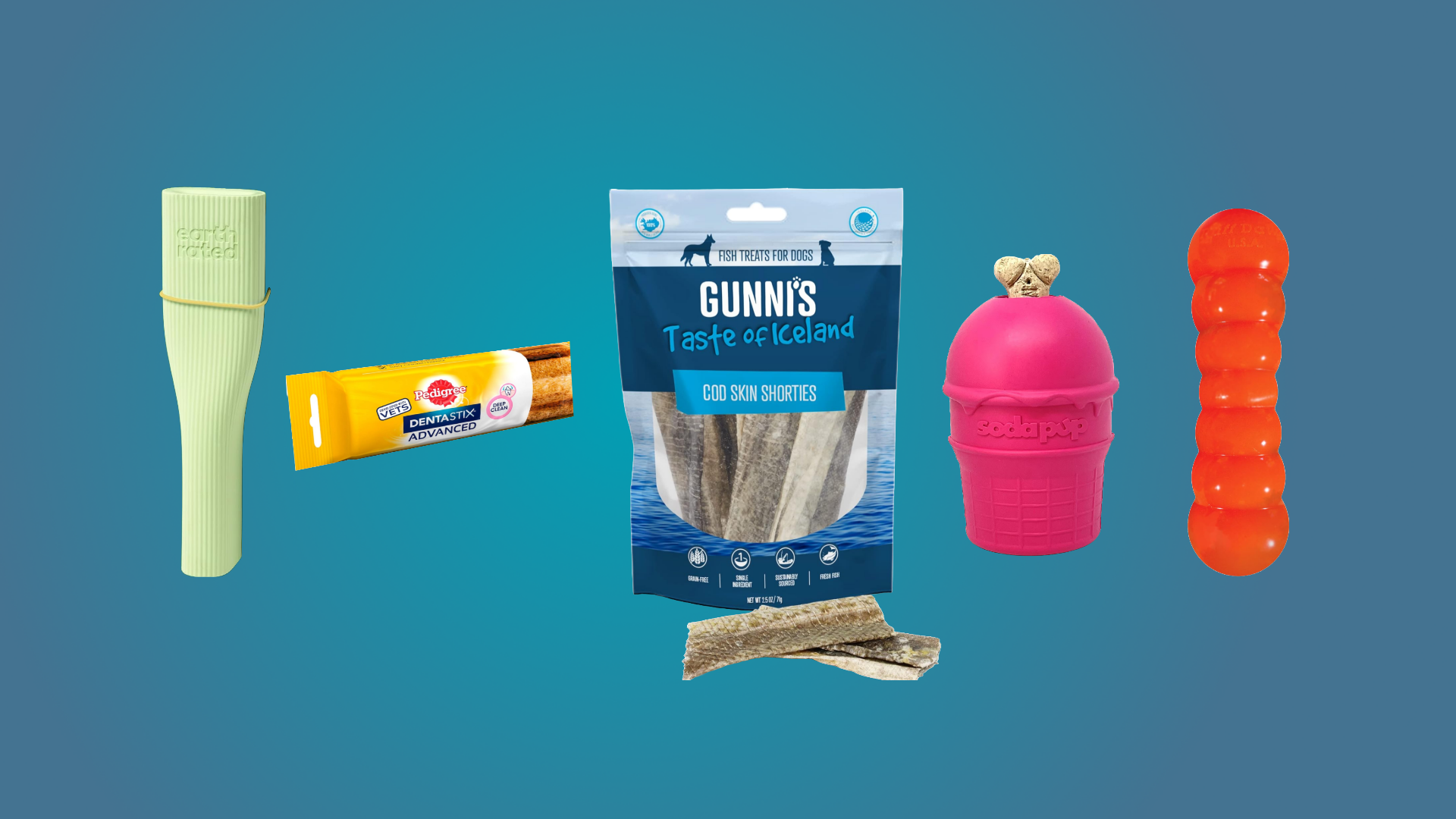
Get the best advice, tips and top tech for your beloved Pets
You are now subscribed
Your newsletter sign-up was successful
If you've got a bored dog on your hands, the best long-lasting dog chews can be a total game-changer. Not only do they keep your pooch entertained (thereby reducing destructive behavior), but they can also help keep their teeth in tip-top condition.
Dog chews come in all shapes and sizes, from edible treats to flavored toys, and while there are plenty of benefits, it's worth being mindful of the risks. Some popular chews, like rawhide, can actually do more harm than good, so it's important to know which dog chews are safest for aggressive chewers before you stock up.
Below, we've rounded up five of the best long-lasting dog chews that are safe for your pooch to nibble on (and that we'd happily give to our own dogs). These products have been put through their paces by our review panel's pups, so you can feel confident you're in good hands. Read on to find out why Pedigree Dentastix Advanced is our top pick.
The best long-lasting dog chews
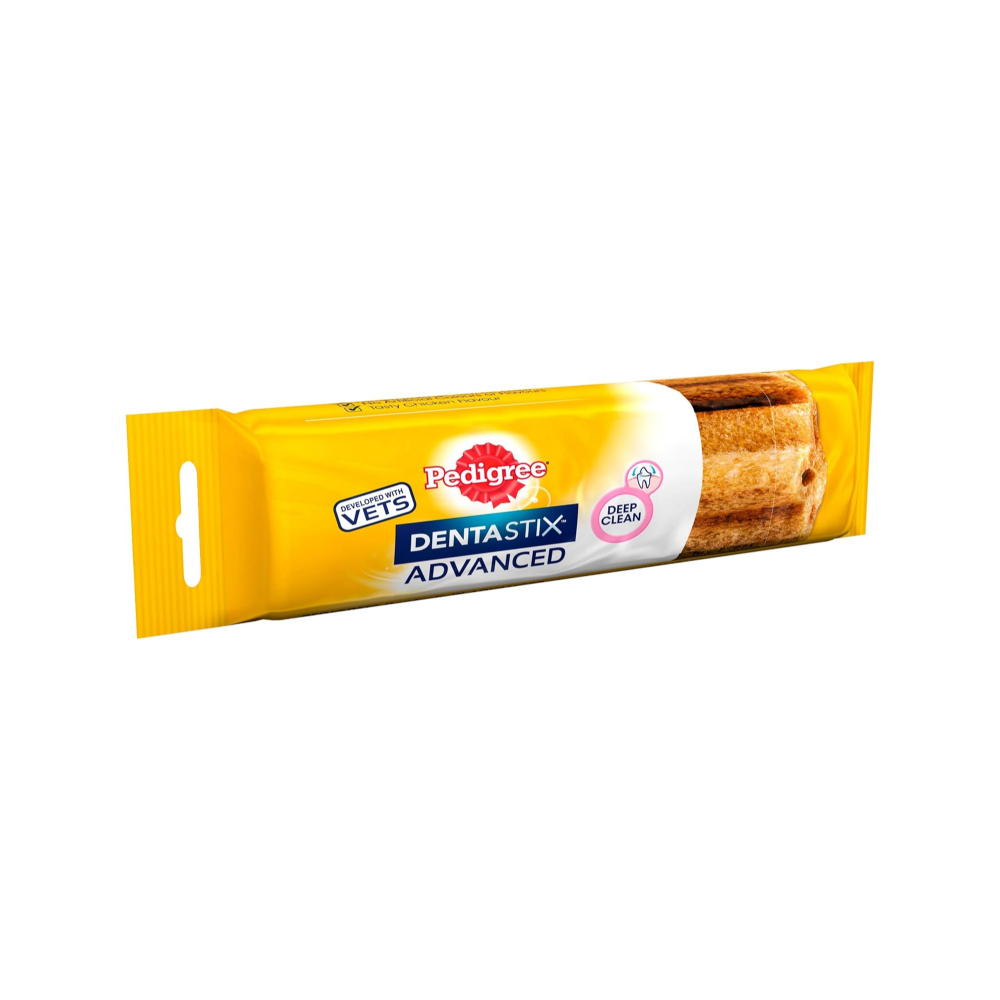
The best dental dog chew
Approved by the Veterinary Oral Health Council (VOHC), these dental chews help promote healthy oral hygiene by removing plaque build-up along the gumline.
They’re free from added sugar, flavorings and additives, and are low in fat, making them a great choice for many dogs. However, they do contain 240 calories per piece, so if your pooch is on a strict diet, the Earth Rated Enrichment Toy or Ruff Dawg Buster might be a better option.
Compared to Pedigree's Daily Chews, these last 3.5 times longer, helping to keep your dog entertained for extended periods.
Our tester Paul said: "To my surprise, it took my dog a solid 10 minutes to finish, which is very impressive for him. He ate every single bit of it, and based on his reaction, we'll definitely be buying these again!"
Reason to buy: VOHC-approved, removes plaque, affordable
Reason to avoid: High in calories, too large for small dogs
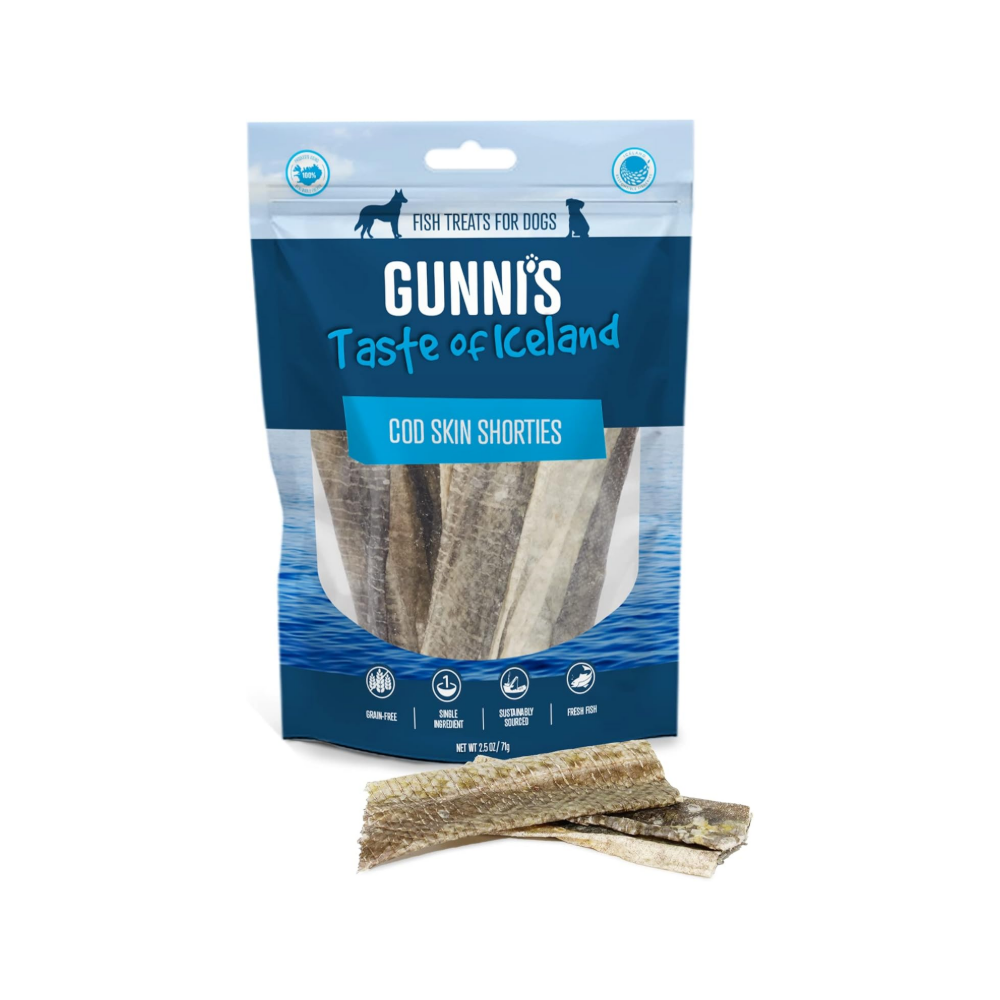
The best fish hide dog chew
Made from sustainably caught Icelandic fish, these cod skin chews are high in protein and omega-3 and -6 – essential for healthy muscles, skin, and coat.
Cod skins come recommended by our vet, Dr. MacMillan, who says they're a safer alternative to rawhide and less likely to be harsh on your dog's teeth.
These chews are air-dried at source to lock in vitamins and minerals, and they contain no fillers or additives – just 100% fresh cod. However, if your dog is on a special diet, we'd recommend the Earth Rated Natural Rubber Enrichment Toy or the Ruff Dawg Buster.
Our tester Paul said: "As a strong chewer, my dog usually makes quick work of snacks, but these lasted him a long time by standards. From the moment he got a whiff, his tail didn't stop wagging!"
Reasons to buy: Safer than rawhide, high protein, empty calories, zero carbon footprint
Reasons to avoid: Not 100% risk-free – always supervise your dog
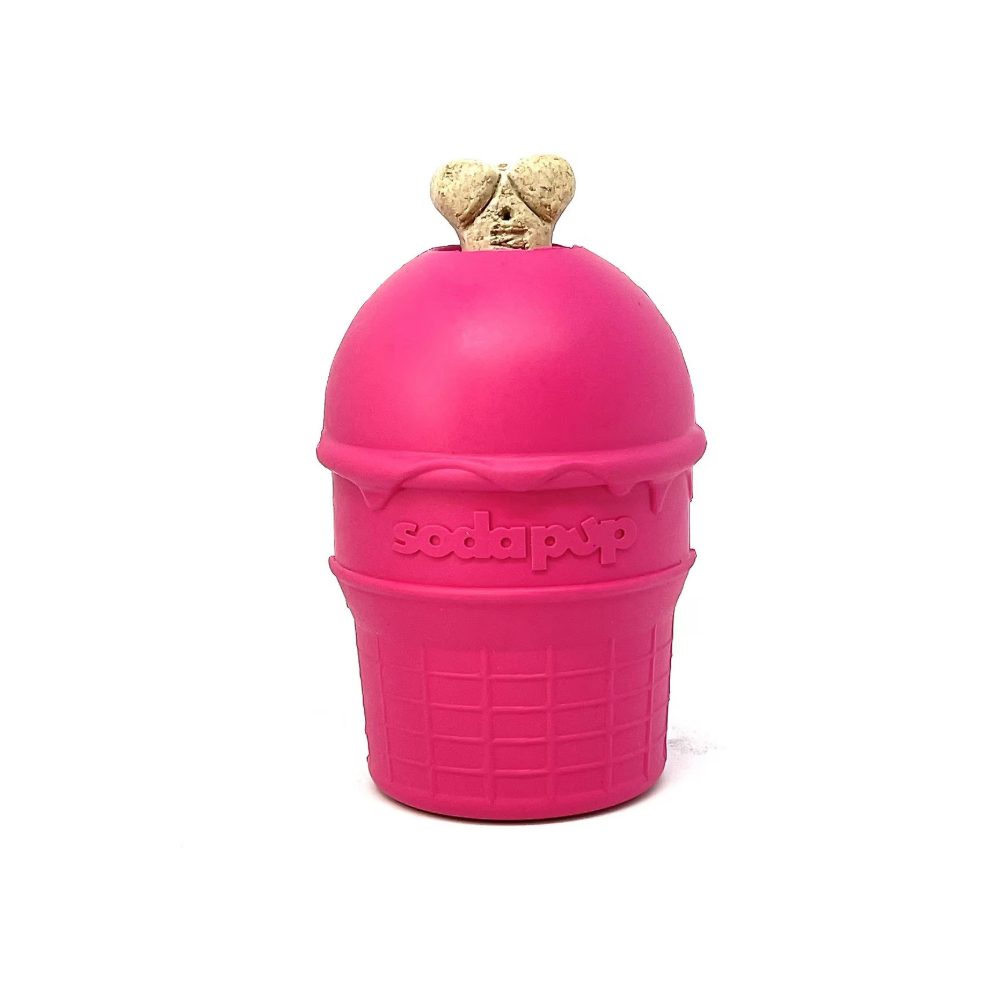
The best enrichment dog chew
If you've got a food-motivated dog that needs a little encouragement, this enrichment toy is a great choice. Stuff their favorite treats or wet food in the top, and they'll have hours of fun trying to pry and chew it out.
Our tester, Michael, gave this toy to his dog Petey and praised the "tough" rubbery material that "can withstand constant chewing." He’s also found that it works well for a game of fetch and that Petey loves to retrieve it.
This chew comes in two different sizes and colors to help you find the perfect fit, and it's easy to clean with soap and water after playtime. However, if your dog is particularly small, choose the Earth Rated Natural Rubber Enrichment Toy instead, which can also be stuffed with treats.
Reason to buy: Tough and durable, non-toxic materials, engaging
Reason to avoid: Might be too big for very small dogs
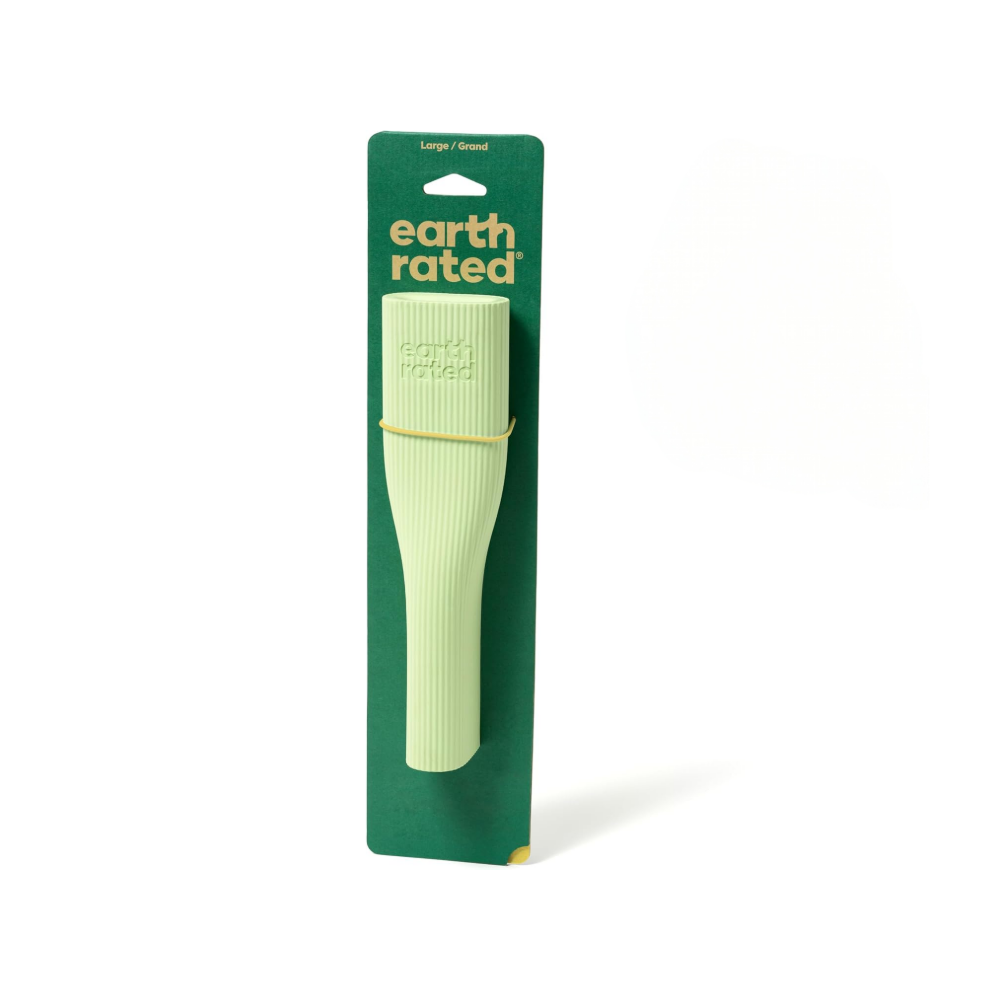
The best chew toy for small to medium dogs
This durable dog chew has been a big hit with our tester Derek's dog, River. Whether it was stuffed with his favorite treats or given as a regular toy, it kept him well entertained and he "seemed to really enjoy it".
Made from natural rubber with grooves for your dog to grip onto, Derek says this chew feels "extremely well made" and shows no signs of wear and tear – even after plenty of use. We love the fact that it's dishwasher safe, making clean-up so much easier – especially when you're filling it with messy wet food.
There are two different sizes to choose from, and considering the high-quality build, it comes at an affordable price tag of under $13 (small) and $17 (large). If you have a particularly large dog, we'd recommend the Ruff Dawg Buster instead.
Reason to buy: Can be filled with treats, dishwasher safe, ergonomic design
Reason to avoid: Not the best for extra-large dogs
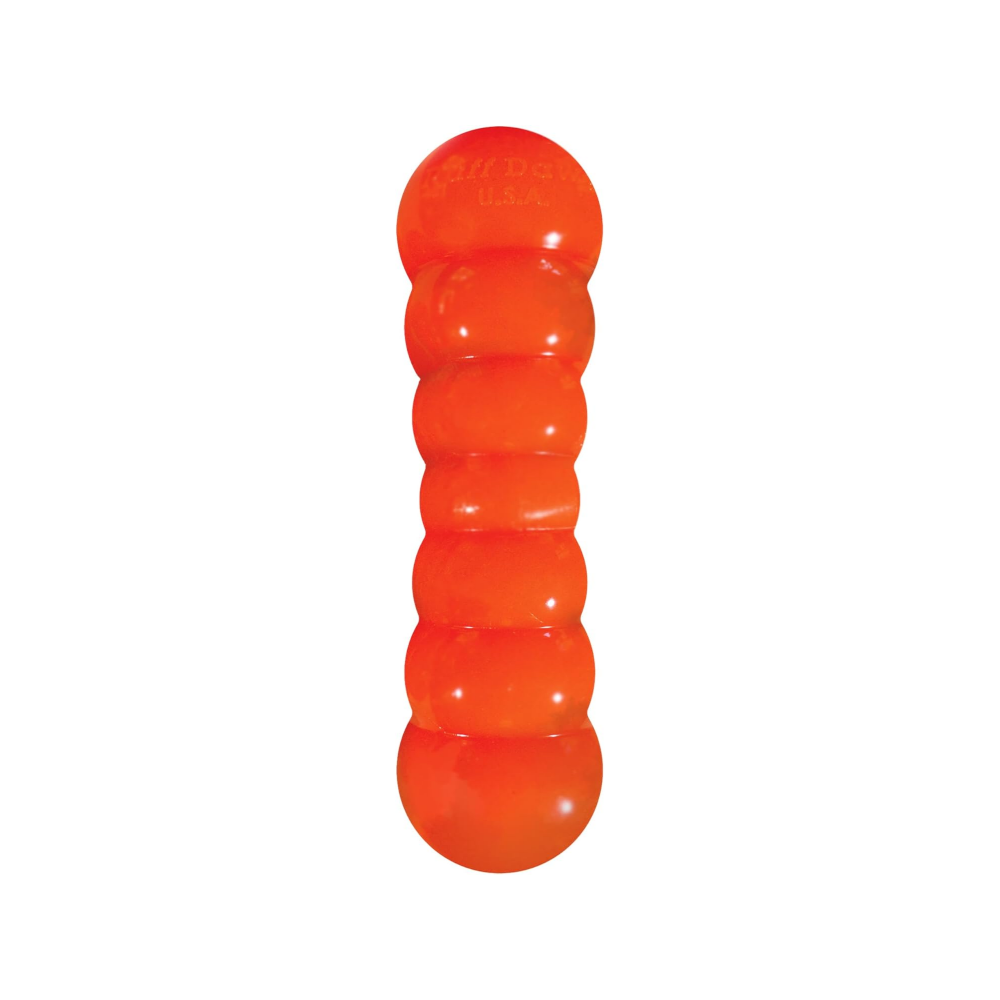
The best chew toy for large dogs
This hard-wearing dog toy is tough and sturdy, created with aggressive chewers in mind and made from recyclable, BPA-free materials.
With its lightweight design that's perfect for throwing and a ribbed texture for added grip, it's our top pick for big dogs with active lifestyles. This chew even floats, making it ideal for water play without the risk of losing yet another toy.
Our tester Isaiah describes the chew as "extremely high-quality", which explains why the manufacturer is confident enough to offer a lifetime guarantee and will replace it if it breaks.
However, if you have a small dog, opt for the Earth Rated Natural Rubber Enrichment Toy instead.
Reason to buy: Highly-durable, lifetime guarantee, BPA-free, recyclable
Reason to avoid: Too large for small dogs
Photos from testing
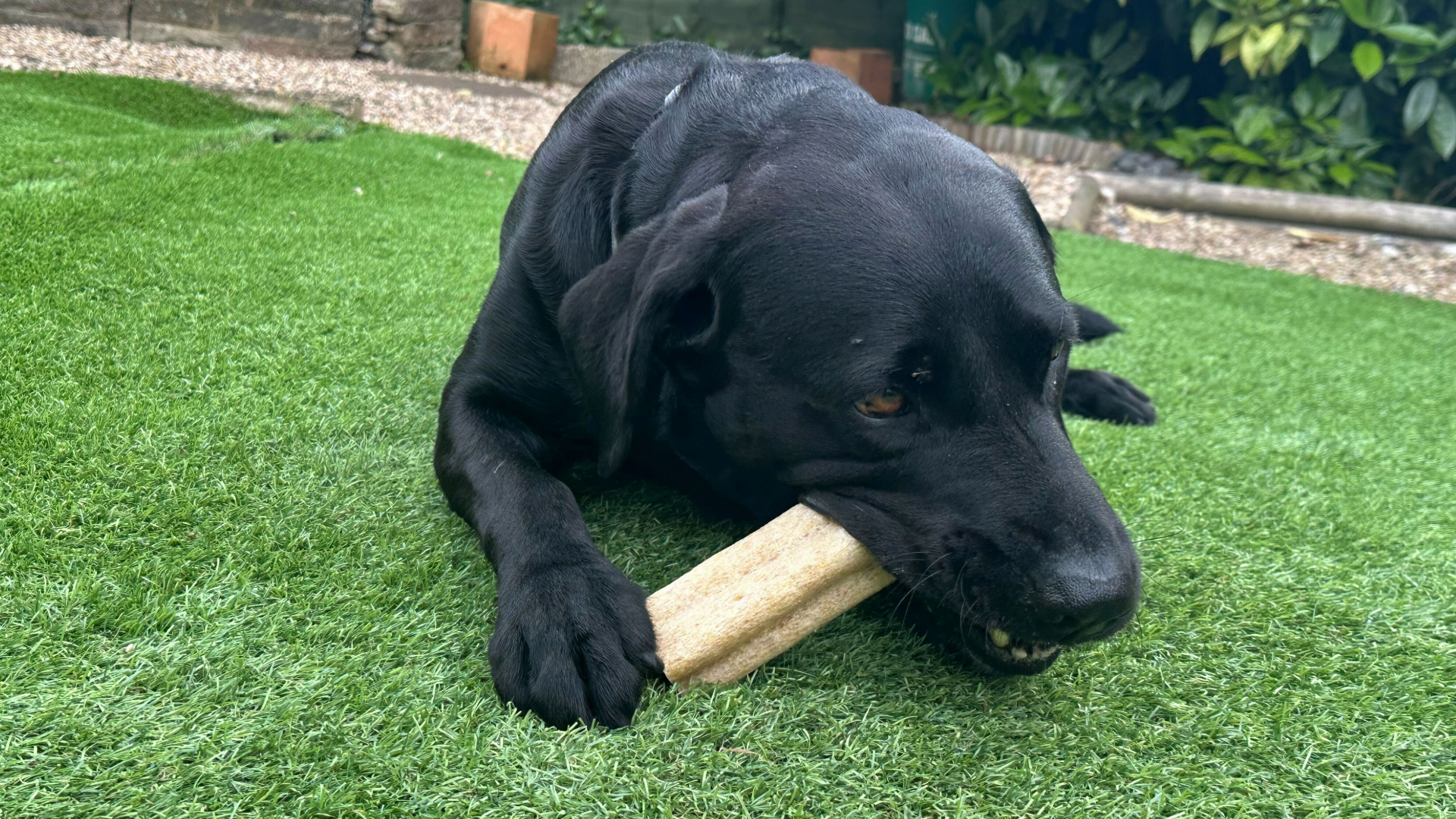
Pedigree Dentastix Advanced
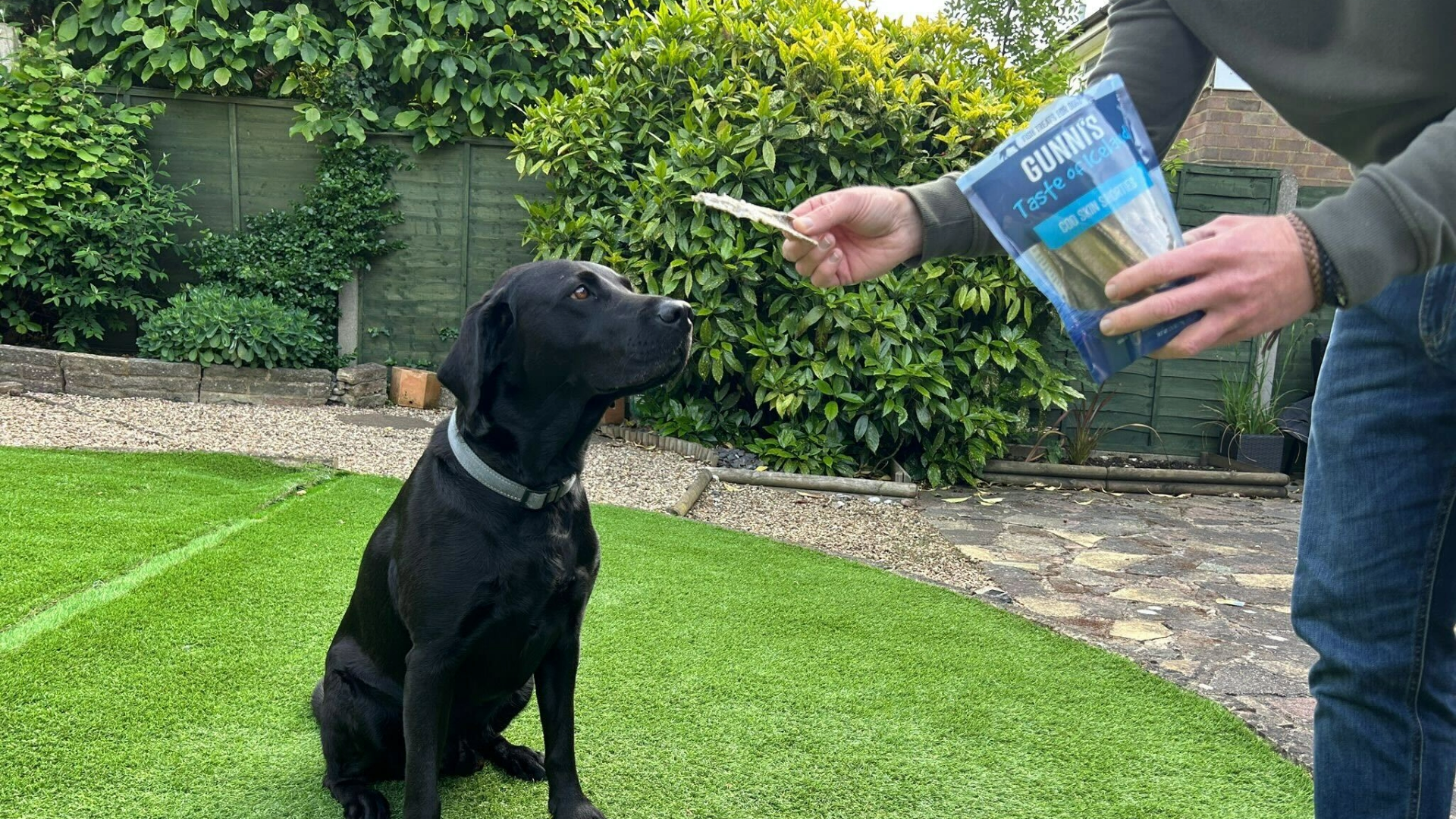
Gunni’s Cod Skin Shorties

SodaPup Ice Cream Cone Treat Dispenser Dog Toy
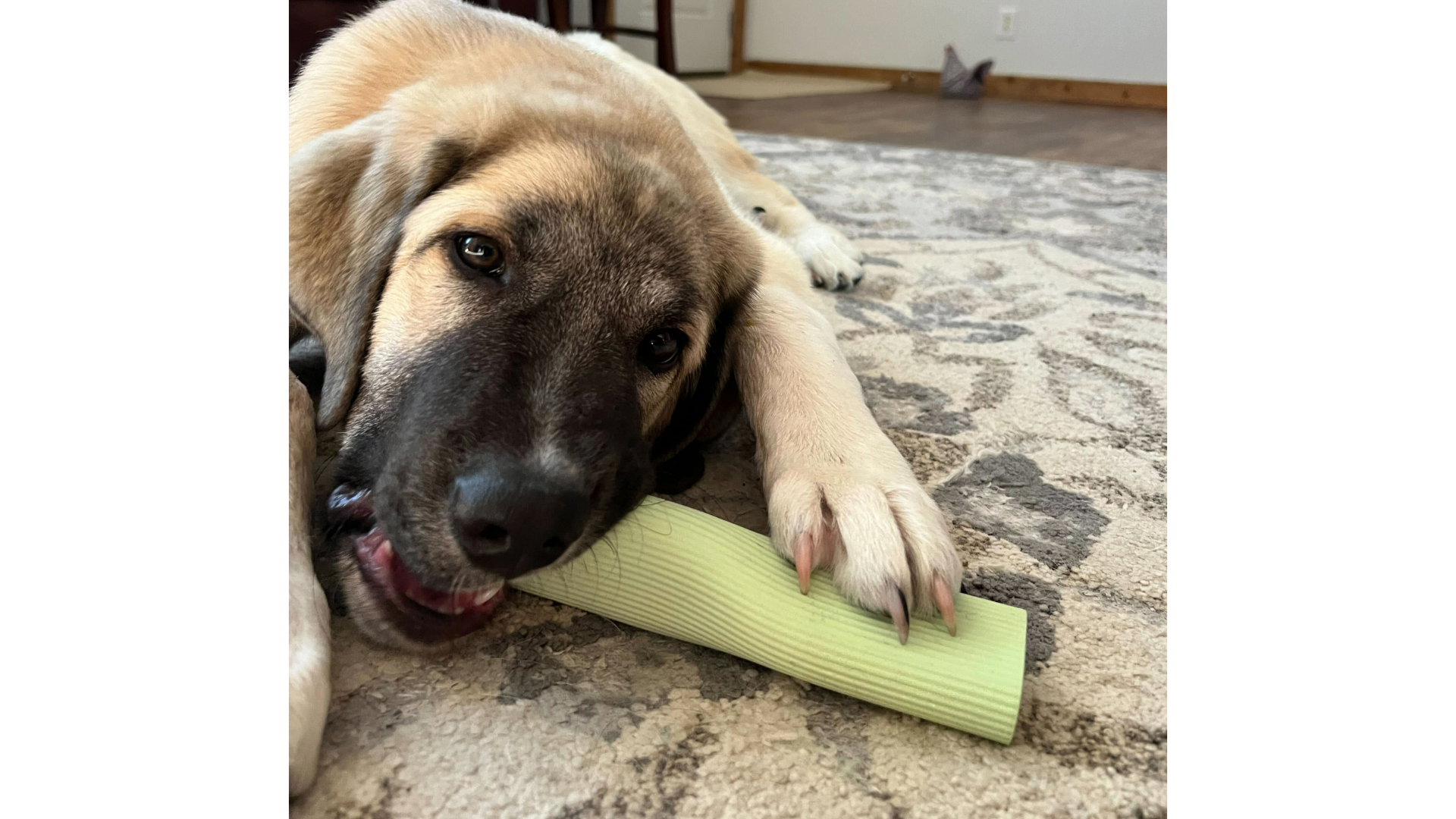
Earth Rated Natural Rubber Enrichment Toy
Videos from testing
Other long-lasting dog chews to consider
Wagtastic Chewy Strips
Why you can trust PetsRadar
We also tested the Wagtastic Chewy Strips in the lamb and chicken flavor, which our tester Chloe's dogs enjoyed. While the flavor was a big hit, they didn’t last as long as other options in this guide and would be better off served as a treat, rather than a long-lasting chew.
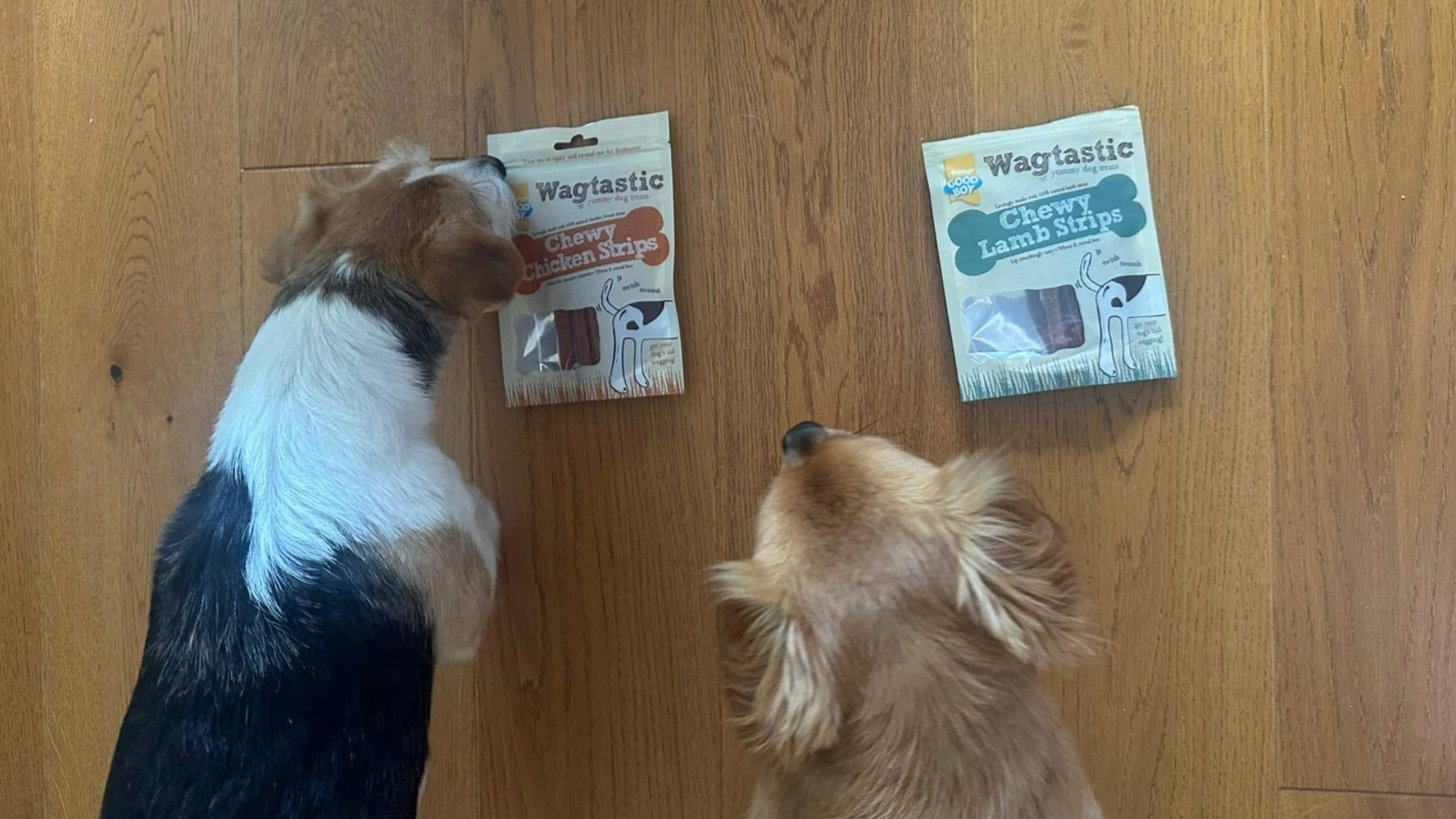
How we tested the best long-lasting dog chews
Before we began testing the best long-lasting dog chews, we consulted our team of in-house vets for their recommendations. Dr. Godfrey advised against rawhide chews, which can pose risks to your dog's health, and instead recommended including fishhide and sturdy chew toys as safer alternatives.
After researching the top pet product websites and reading ingredient lists, materials, and customer reviews, I selected a range of dog chews for the PetsRadar review panel to test. I also asked friends, family, and colleagues for their recommendations.
Our testers answered questions about the durability and safety of each chew, as well as whether their dog enjoyed sinking their teeth into it. As always, our reviews are honest and independent – if you want to learn more, read our dedicated page on how we test.
Meet our review panel

Michael Domingo, Tester
Michael's dogs, Tito and Petey, tried the SodaPup Ice Cream Cone Treat Dispenser Dog Toy.

Chloe Hicks, Tester
Chloe's dogs, Cody and Bailey (pictured), tested the Wagtastic Chewy Strips.
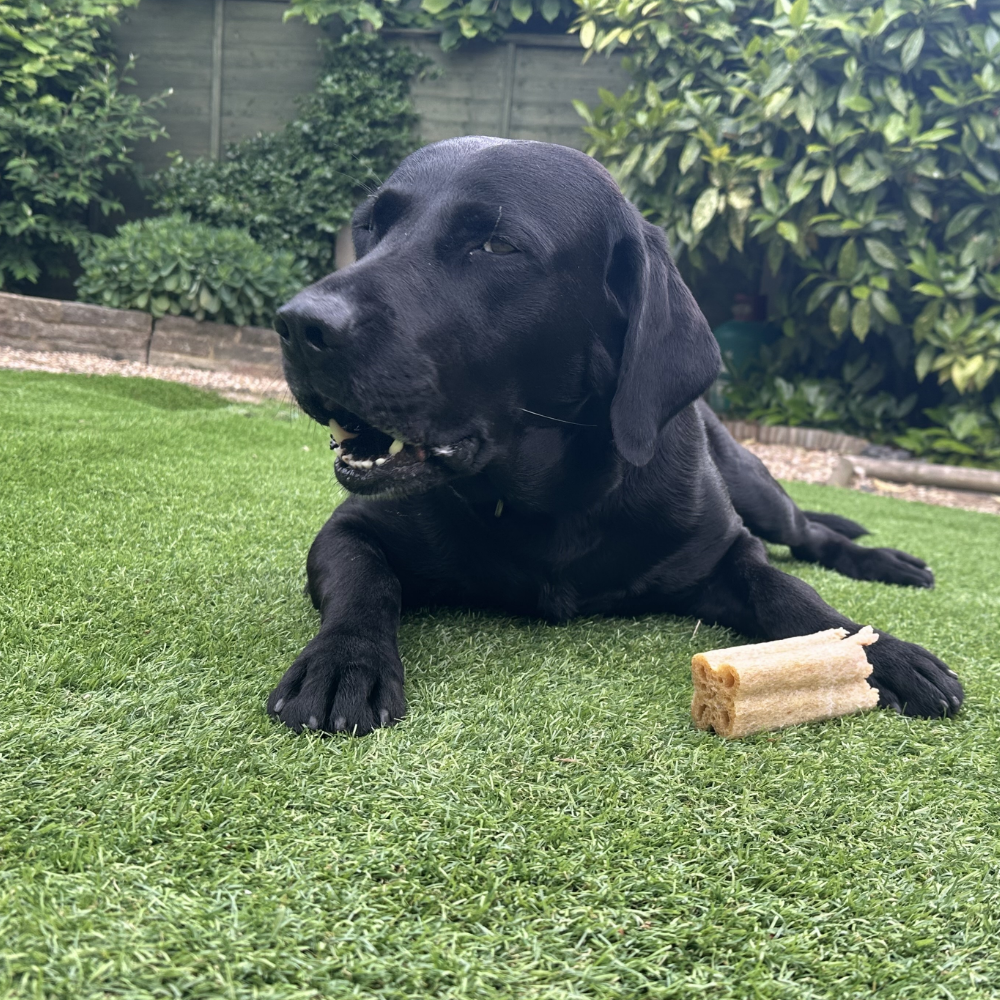
Paul Berret, Tester
Paul's dog, Hugo (pictured), tested the Pedigree Dentastix Advanced.
How to choose the best long-lasting dog chews
Chewing has many benefits to your dog – and if you can provide them something to fulfill this natural instinct, then they'll reap these benefits without destroying any of your belongings in the process.
When choosing the best long lasting dog chew, the main thing you need to consider is your dog’s desire to chew. Some dogs are truly determined and would chew for every waking moment if they could, while others are not nearly as invested but will still benefit if you can find something that works for them.
If they're an aggressive chewer and there’s absolutely no stopping them, you’ll want something tough that’s up to the job and will keep him entertained for long enough for you to get a few jobs done. Whereas if your dog isn’t so determined, you’re better off finding a slightly softer chew that won’t put him off so that he stays busy for just as long.
You'll want to keep in mind:
- Your dog's diet: If your pooch is on a strict calorie protocol or suffers from allergies, you might be better off with a durable chew toy rather than an edible stick.
- The size of your dog: Make sure you choose an appropriately sized chew to prevent injuries.
- Consider the benefits: If your dog needs extra support with their dental health, look for a VOHC-approved chew to help remove plaque (like the Pedigree Dentastix Advanced in this guide).
Chew | Price | Best for |
|---|---|---|
$13.99 (2.5oz) | Dogs who usually enjoy rawhide, but need a safer alternative | |
£17.46 (9-pack) | Medium to large-sized dogs who enjoy edible chews | |
$13.99 | Food-motivated chewers, or dogs on special diets | |
$17.99 | Small to medium-sized dogs | |
$32.95 | Large dogs who need a heavy-duty chew |
What do vets recommend for dogs to chew?
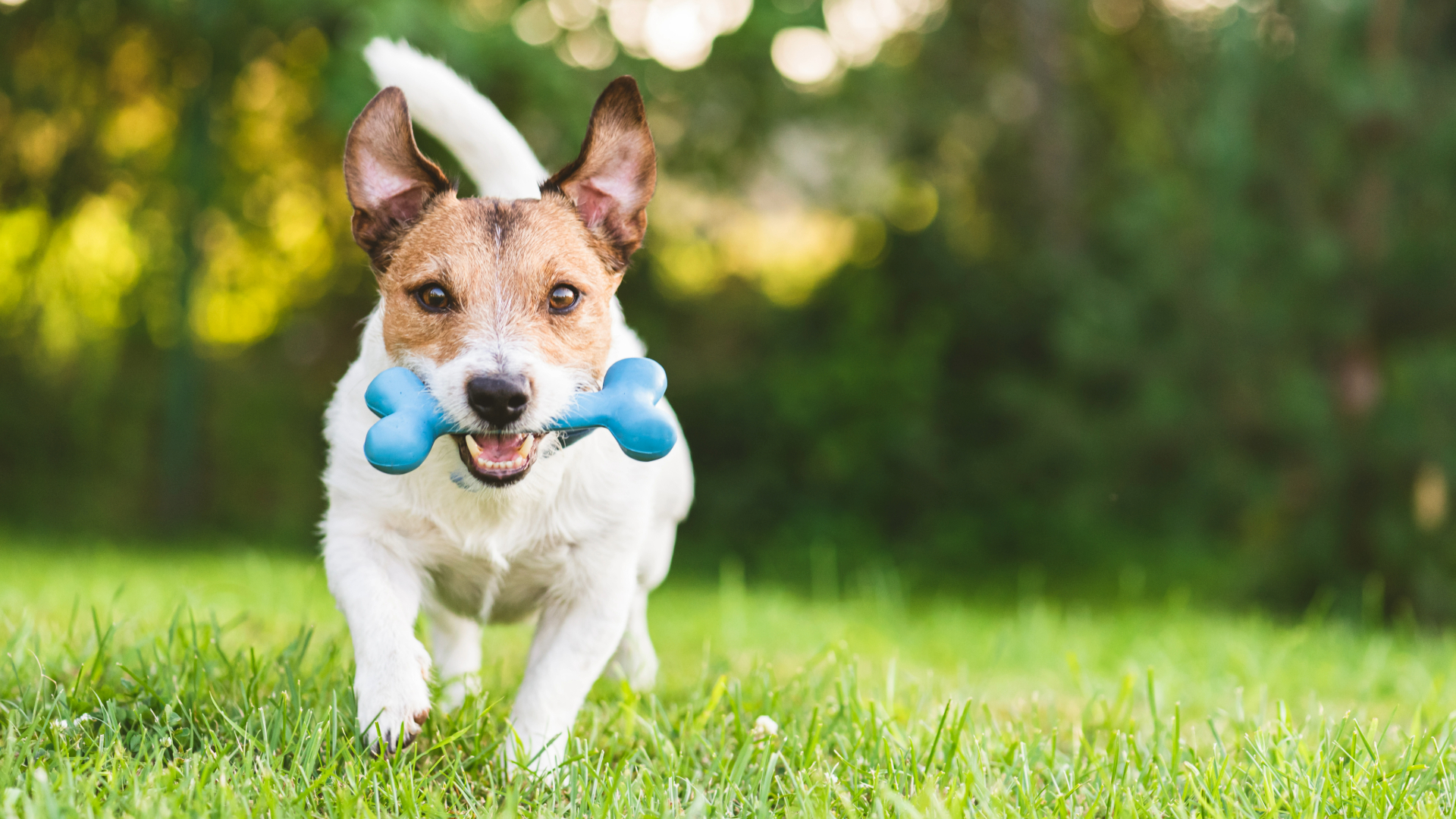
Vet Joanna Woodnut says that you can ask 10 vets this question and you’ll get 10 different answers. The truth is, there are lots of opinions about what’s best to chew and there’s very little data to back it up.
"In general, most vets agree that many chews are dangerous," explains Woodnutt. "Chews that are too hard risk breaking the teeth, causing a lot of pain and requiring emergency dental surgery. Chews that are not digestible may be a risk for obstruction if your dog swallows the chew – or parts of it."
However, the risks of chews need to be balanced against the benefits – chewing is an innate behavior, and providing dogs with things to chew is good for their mental health and dental development.
Vet Dr Rebecca MacMillan says: "If you’re looking for a long-lasting chew for your dog, consider a sturdy chew toy or offer dried cod skin, also known as fish hide, which is safer than rawhide chews. Remember, though, the risk of choking or injury can never be completely removed, so it’s important to supervise your dog closely."
Can I give my dog a chew every day?
According to Dr Woodnutt, "You can give your dog a chew every day if it’s not a calorific chew, and the calories have been calculated in their daily allowance. For example, stuffing a Kong with your dog’s normal food means it’s a healthy option for your dog to have on a daily basis.
"A wooden chew doesn’t have any calorie value at all and can be given daily. However, most other chews – dental chews, natural dried chews and yak chews, for example – can be highly calorific. If the chew amounts to more than 10% of your dog’s daily calorie allowance you shouldn’t feed it daily."
Can a dog chew be too hard?
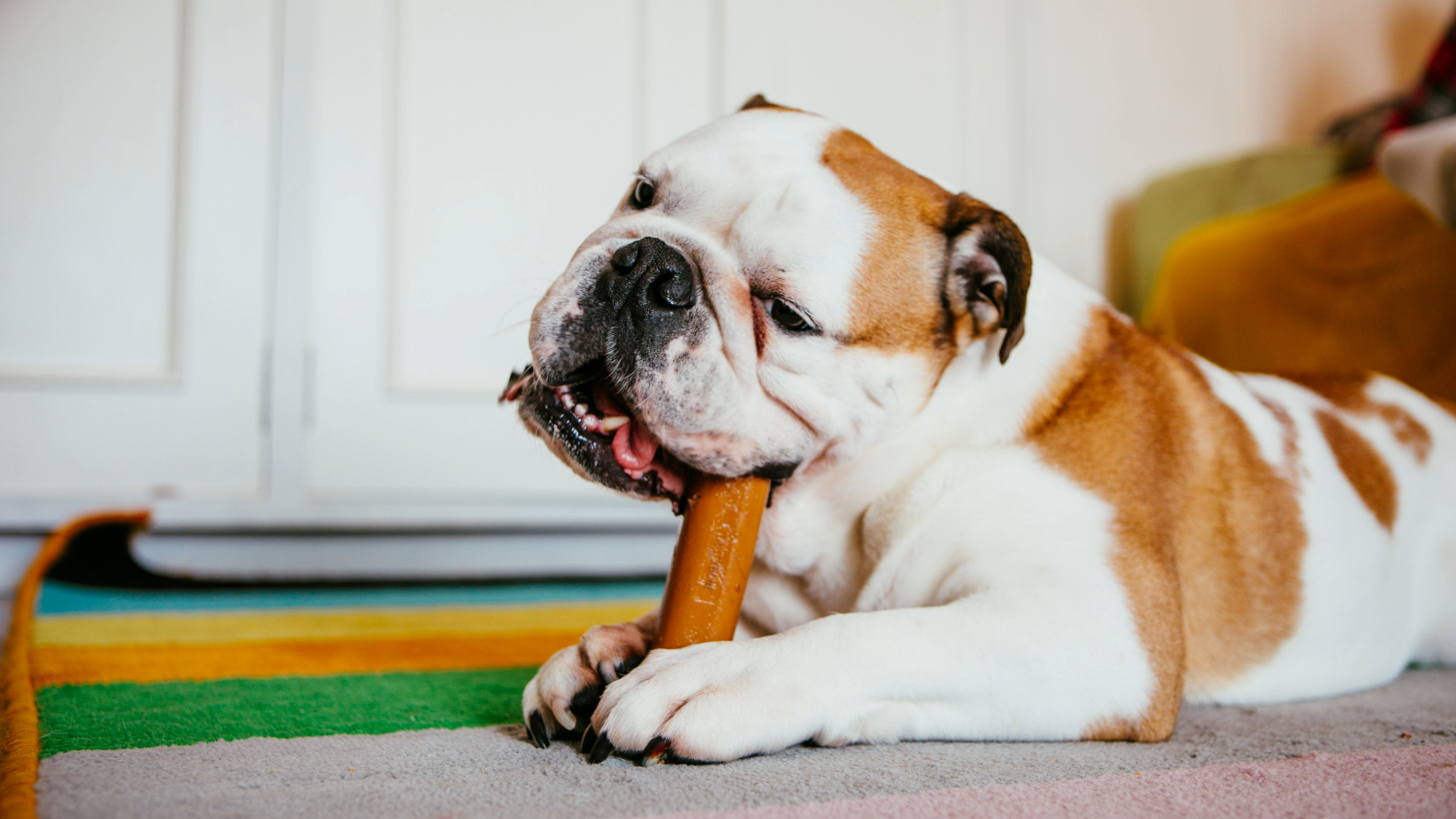
In short, yes! If a chew is too firm, solid, or hard – especially if your dog is a puppy, hasn’t gone through teething, or is a small breed with fine, delicate teeth – it can unfortunately damage, crack, or fracture their teeth or gums.
This then results in a trip to the vet for examination with possible further dental care or dental/oral surgery required, so it’s worth taking the time to ensure you select the correct type and size of chew for your dog.
Can puppies have rawhide chews?
You might be wondering if rawhide bones are good for dogs. Since it can be difficult to digest, you shouldn't give it to puppies aged under six months old. At that age, their jaws and teeth are not likely to be strong enough and there are other health-related issues to take into account.
“Rawhide chews are not ideal,” says dog behaviorist Nick Jones. “When they are chewed for long enough they become like wet leather and a dog can chew off a section which can present problems in the digestive tract [such as vomiting up an oversized swallowed piece].
"Rawhide, because of its temperamental state and chew unpredictability, can also become stuck along the gastrointestinal causing your dog to be unwell and there to be a blockage if a chunk is ingested. There are also ethical issues over where some rawhide comes from and how it is treated.”
We’ve rounded up some alternatives to rawhide, and put together some more information about rawhide vs beefhide.
What’s the best way to store dog chews?
Dog chews are often used for intermittent or supplemental feeding, so the best way to ensure they last longer is to pack them away in a clean, airtight container (check out our guide to the best pet food containers) and only hand them out when you want to distract your dog.
You should also keep any unused chews stored in their packet. Just make sure it remains sealed or, again, is placed in an airtight container to prevent bacterial growth. After all, most food goes off when exposed to the air.
“If you give a dog something hard and appropriate, it can last a very long time,” says dog behaviorist Nick Jones. “You can also place a chew in the freezer. A frozen chew will always last longer.”
Read next: Are antlers safe for dogs?, dogs that chew the most and is rawhide bad for dogs? Or, can dogs have fish skins as chews and can dogs chew corn cobs?

Megan has been a Staff Writer at PetsRadar since 2023, writing buying guides, reviews, deals, and features. Having grown up with dogs, she understands the importance of a high-quality chew and has made it her mission to find the best long-lasting option for your pooch. She graduated from the University of Westminster in 2022 with a degree in Journalism and has experience writing for a range of lifestyle publications. If you want to learn more about how she selected and tested products for this guide, her emails are always open.

After graduating as a vet from the University of Nottingham in 2016, Dr. Joanna Woodnutt went on to practice companion animal medicine in the Midlands. She quickly developed a love of consulting and helping clients with medical problems such as dermatology, behavior and nutrition - anything that involved helping clients understand their pets better.
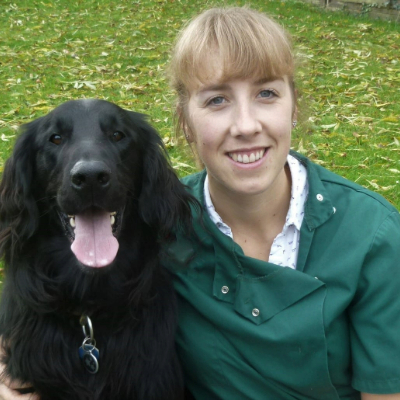
Rebecca is a veterinary surgeon who graduated from the Royal Veterinary College in London in 2009. She enjoys medicine in particular and she is proud to have achieved a BSAVA postgraduate certificate in small animal medicine (with commendation) from Nottingham Trent University in 2021.
Edited by Georgia Guerin and Alexis de Leaver.
We regularly review our buying guides to ensure the products are relevant, available and up to date. This page was last updated in May 2025 by Megan Milstead.
Get the best advice, tips and top tech for your beloved Pets

Megan is a Staff Writer at PetsRadar, covering features, reviews, deals, and buying guides. She has a wealth of experience caring for animals, having grown up with dogs, cats, horses, guinea pigs, and more throughout her life. She studied BA Journalism at the University of Westminster, where she specialized in lifestyle journalism and was editor of Smoke Radio’s lifestyle website. Megan works alongside qualified vets and accredited trainers to ensure you get the best advice possible. She is passionate about finding accurate and helpful answers to your pet-related questions.
